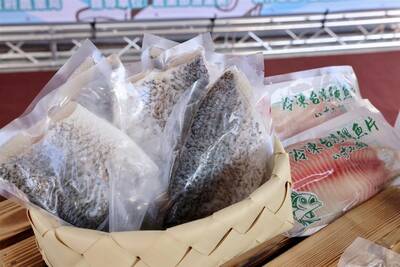Airlines are banned from using violence or threats to prevent people from boarding overbooked flights, nor can they force people to disembark after they are already seated, the Civil Aeronautics Administration (CAA) said yesterday.
The agency stipulated the guidelines after meeting with representatives from domestic airlines yesterday.
The guidelines apply to all Taiwanese airlines, the agency said.
If an airline needs to bump people off an overbooked flight, they must first seek volunteers. If no passenger is willing to give up their seat, the airline should follow its own procedures and ask passengers based on order of priority until the number of passengers on the flight matches the number of available seats.
Airlines are also banned from targeting any passenger on the basis of religion, ethnicity, gender or age, the agency said, adding that they must not apply force or make threats to deny boarding of any passenger.
Airlines should help passengers rearrange flights, provide them with compensation and offer assistance, regardless of whether the passenger gave their seat voluntarily or involuntarily, the guidelines stipulated.
They also said that in principle, airlines should make arrangements for passengers who would be bumped off an overbooked flight when they check in at an airline’s counter at the airport, and all arrangements should be finished before boarding.
Except in extenuating circumstances, an airline cannot ask any seated passengers to disembark an overbooked flight.
Airlines should also fully disclose online the procedures it would take to handle passengers on overbooked flights, the agency said.
The new guidelines come in the wake of an incident on April 9 in the US, where Chicago airport security personnel dragged a passenger off a United Airlines flight for refusing to give his seat to a flight crew member who was scheduled to be on duty the next day, causing injuries.
Facing public censure, United apologized and promised to reduce the number of overbooked flights, as well as offer up to US$10,000 in compensation to passengers who voluntarily forfeit their seats.

Taiwan's Vice President Hsiao Bi-khim (蕭美琴) said Saturday that she would not be intimidated by the Chinese Communist Party (CCP), following reports that Chinese agents planned to ram her car during a visit to the Czech Republic last year. "I had a great visit to Prague & thank the Czech authorities for their hospitality & ensuring my safety," Hsiao said on social media platform X. "The CCP's unlawful activities will NOT intimidate me from voicing Taiwan's interests in the international community," she wrote. Hsiao visited the Czech Republic on March 18 last year as vice president-elect and met with Czech Senate leadership, including

There have been clear signs of Chinese Communist Party (CCP) attempts to interfere in the nationwide recall vote on July 26 in support of Chinese Nationalist Party (KMT) legislators facing recall, an unnamed government official said, warning about possible further actions. The CCP is actively involved in Taiwanese politics, and interference in the recall vote is to be expected, with multiple Chinese state media and TAO attempts to discredit the Democratic Progressive Party (DPP) and undermine public support of their recall movement, the official said. This interference includes a smear campaign initiated this month by a pro-Beijing Hong Kong news outlet against

A first shipment of five tons of Taiwan tilapia was sent from Tainan to Singapore on Wednesday, following an order valued at NT$600,000 (US$20,500) placed with a company in the city. The products, including frozen whole fish and pre- cooked fish belly, were dispatched from Jiangjun Fishing Harbor, where a new aquatic processing and logistics center is under construction. At the launch, Tainan Mayor Huang Wei-che (黃偉哲) called the move a “breakthrough,” marking Taiwan’s expansion into the Singaporean tilapia market. Taiwan’s tilapia exports have traditionally focused on the United States, Canada, and the Middle East, Huang said, adding that the new foothold in

An electric bus charging facility at Taipei Metro’s Beitou Depot officially opened yesterday with 22 charging bays to serve the city’s 886 electric buses. Taipei Mayor Chiang Wan-an (蔣萬安) told a ceremony to mark the opening of the facility that the city aims to fully electrify its bus fleet by 2030. The number of electric buses has grown from about 650 last year to 886 this year and is expected to surpass 1,000 by the end of the year, Chiang said. Setting up the charging station in a metro depot optimizes land and energy use, as the metro uses power mainly during the